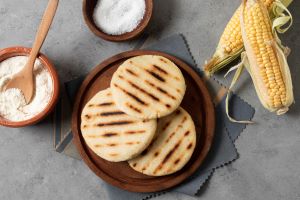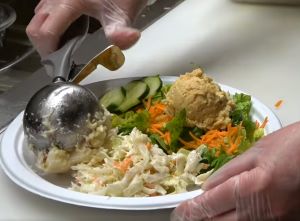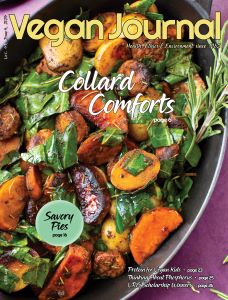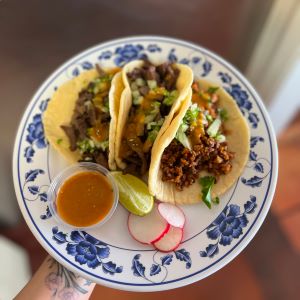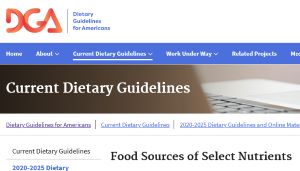Folic Acid in Corn Masa Flour?
by Reed Mangels, PhD, RD
Folic acid is a synthetic form of folate, an essential vitamin. Folic acid is the form of folate that is used in supplements and fortified foods because it is the form that is most stable. In the 1990s, the U.S. Food and Drug Administration (FDA) began encouraging food manufacturers to add folic acid to ingredients and foods such as enriched breads, enriched flours, enriched pastas, enriched rice, enriched corn meal, and breakfast cereals. Corn masa flour was not included on this list. It wasn’t until 2016 that the FDA allowed corn masa flour to be fortified with folic acid.
Corn masa flour is the main ingredient in foods like corn tortillas, tamales, arepas, gorditas, tostadas, pupusas, and tortilla chips.
Manufacturers are encouraged to add folic acid to commonly eaten staple foods to reduce the risk of having a baby with a major birth defect of the brain or spine called a neural tube defect. The risk of neural tube defects is significantly reduced when people who may become pregnant consume recommended amounts of folic acid (1). Following the voluntary addition of folic acid to grain products in the late 1990s, there was a 28% reduction in neural tube defects in the United States. This translates to about 1,300 fewer births with neural tube defects each year (2).
Despite manufacturers being allowed to add folic acid to corn masa flour, many products do not have folic acid added. A study conducted between 2018 and 2022 in the United States that included 59 corn masa flour products and 476 corn tortilla products found that 8 of the corn masa flour products (14%) and none of the corn tortilla products (0%) contained folic acid. In comparison 79% of wheat flour products and 85% of wheat tortilla products contained folic acid (2). A 2024 supply chain analysis of in the United States found only 5.8% of corn masa products were fortified with folic acid (3).
Currently, in the United States, Hispanic people have the highest risk of having a child with spina bifida, a type of neural tube defect, with a rate of 3.8 births with spina bifida per 10,000 live births in Hispanics compared to 2.73 in Black or African Americans, and 3.09 in non-Hispanic whites (4). Federal agencies define “Hispanic or Latino” as “a person of Cuban, Mexican, Puerto Rican, South or Central American, or other Spanish culture or origin regardless of race.” (5) Many reasons are postulated for the higher rate of neural tube defects seen in this population. More widespread fortification of corn masa flour could help pregnant people who use products containing corn masa flour meet recommendations for folic acid.
While vegan diets are commonly high in food folate which is found in plant foods such as green leafy vegetables, dried beans, and oranges, it still appears to be important for those who could become pregnant to get folic acid from fortified foods and/or supplements. You can read more about folic acid in pregnancy here. If you use corn masa flour and products made with corn masa, check that products contain folic acid in their list of ingredients. In addition, the Centers for Disease Control (CDC) urges people to take 400 micrograms of folic acid every day, starting at least one month before getting pregnant and continuing during pregnancy, to help prevent neural tube defects (1).
A recent report (2) from Center for Science in the Public Interest (CSPI) provides additional information on corn masa flour fortification and a call to action for stakeholders ranging from manufacturers and retailers to government agencies to clinicians and consumers.
References
- Centers for Disease Control. Facts About Folic Acid. http://www.cdc.gov/ncbddd/folicacid/about.html
- Franco CM, Greenthal E, Center for Science in the Public Interest. Failure to Fortify. 2023. https://www.cspinet.org/sites/default/files/2023-02/CSPI_FailureToFortify_Eng_2023_final.pdf
- Food Fortification Initiative. Corn Masa in the US: Supply Chain, Market, and Fortification. 2024. https://www.ffinetwork.org/united-states-of-america/?record=231
- Centers for Disease Control. Spina Bifida. 2024. https://www.cdc.gov/spina-bifida/data/index.html
- U.S. Census Bureau. About the Hispanic Population and Its Origin. 2022. https://www.census.gov/topics/population/hispanic-origin/about.html
